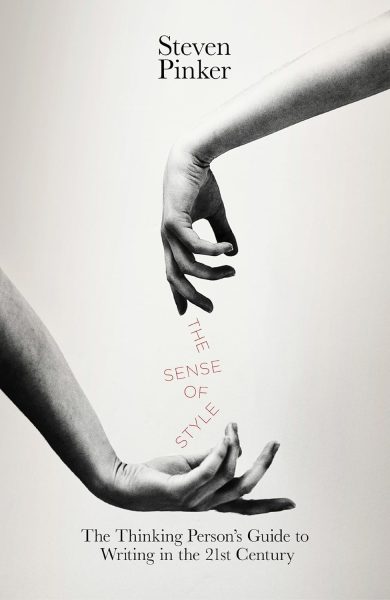Here’s a hard truth: if you’re assuming your audience knows your lingo, you aren’t communicating effectively. This month’s In Case You Missed It, written by Andy Goodman in 2015, offers solutions to make sure your audience is still with you.
Do you care if millions of Americans have low food security? Are you moved by the plight of charismatic marine megafauna? And if there were more than 350 ppm of CO2 in our air, would you be concerned?
Public interest communicators who use these terms want you to be very concerned, but you may not know they’re talking about hungry people, dolphins and whales, or a safe level of carbon dioxide. So, if they want us to care, why are they speaking in code?
 In his new book, The Sense of Style: The Thinking Person’s Guide to Writing in the 21st Century, Steven Pinker says he has “the single best explanation I know of why good people write bad prose.” A professor in the psychology department at Harvard, Pinker believes there’s a reason writers use excessive jargon, abbreviations and technical language. He calls it “the curse of knowledge,” and according to Pinker, no one – not even you, dear reader – is immune:
In his new book, The Sense of Style: The Thinking Person’s Guide to Writing in the 21st Century, Steven Pinker says he has “the single best explanation I know of why good people write bad prose.” A professor in the psychology department at Harvard, Pinker believes there’s a reason writers use excessive jargon, abbreviations and technical language. He calls it “the curse of knowledge,” and according to Pinker, no one – not even you, dear reader – is immune:
“Every human pastime…develops an argot to spare its enthusiasts from having to say or type a long-winded description every time they refer to a familiar concept in each other’s company. The problem is that as we become proficient at our job or hobby we come to use these catchwords so often that they flow out of our fingers automatically, and we forget that our readers may not be members of the clubhouse in which we learned them.”
Signs of the curse are everywhere. When talk turns to “widening access for underserved communities,” it’s there. When “ASTHO and NACCHO meet with POTUS about the role of the CDC,” it’s there. And, as Pinker points out in his book, if a questionnaire asks you to “evaluate each statement with a subsequent assessment word” – when what they really mean is “choose true or false” – it’s definitely there.
Lifting the curse is not as easy as you may think. If the problem boils down to forgetting about your readers, you might conclude that spending a few moments considering their level of understanding will be enough. The research, says Pinker, shows otherwise. “Social psychologists have found that we are overconfident…about our ability to infer what other people think,” he writes. But all is not lost for the accursed, and Pinker offers some actionable tips on how to redeem your writing:
JARGON

Illustration by Veronica Cerri
Insider language, which is often abstract and conceptual, rarely helps your audience visualize the subject matter. If they can’t see it, it’s a good bet they won’t make the extra effort to understand it. As Pinker writes, “many experiments have shown that readers understand and remember material far better when it is expressed in concrete language that allows them to form visual images.”
Your readers may know what an “economically depressed urban sector” is, but “a downtown with empty storefronts and abandoned lots” is a place they can see and feel.
ABBREVIATIONS
In general, writes Pinker, they are more for the benefit of the writer than the reader. “Abbreviations are tempting to thoughtless writers because they can save a few keystrokes every time they have to use the term. The writers forget that the few seconds they add to their own lives come at the cost of many minutes stolen from the lives of their readers.”
TECHNICAL TERMS
There will be times that you cannot avoid using them, but “…a considerate writer will [add] a few words of explanation to common technical terms, as in ‘Arabidopsis, a flowering mustard plant,'” says Pinker.
Nonprofit communicators should be particularly vigilant where the curse of knowledge is concerned. In a sector where nearly 60% of executive directors hold masters degrees or doctorates, talking above the audience’s heads is all too common.
Pinker’s book is filled with excellent advice for communicating more clearly, but in the end, his insight into the curse of knowledge may be the most valuable. And I believe the author would agree.
“The imperative to overcome the curse of knowledge may be the bit of writerly advice that comes closest to being sound moral advice,” Pinker writes. “Always try to lift yourself out of your parochial mindset and find out how other people think and feel. It may not make you a better person in all spheres of life, but it will be a source of continuing kindness to your readers.”
To learn more practices for strategic communication, sign up for The Goodman Center’s workshop Strategic Communications: Cutting Through the Clutter on December 2 and 4.